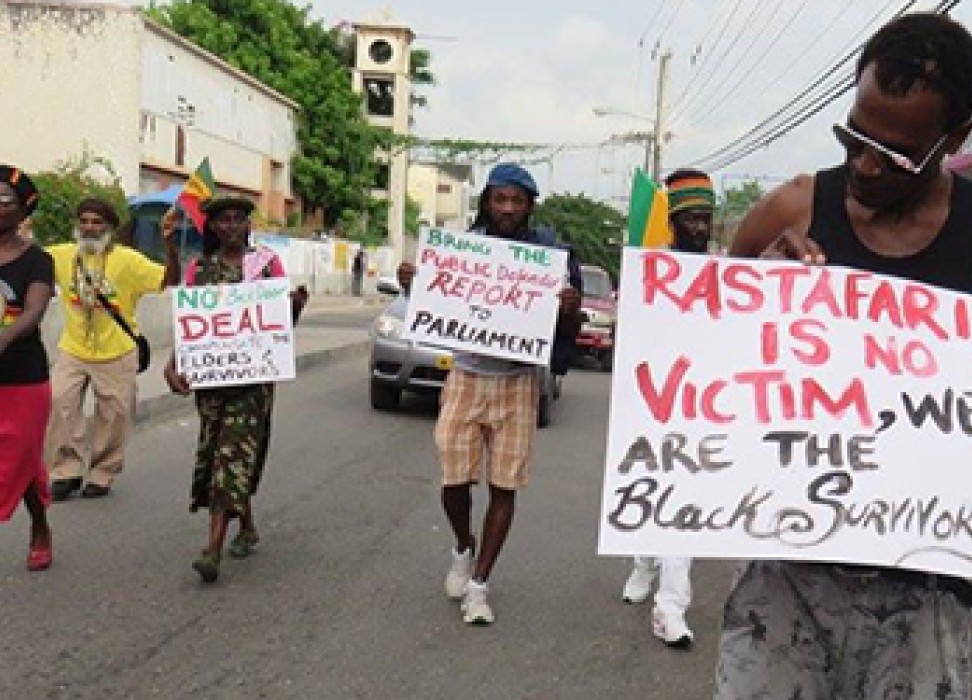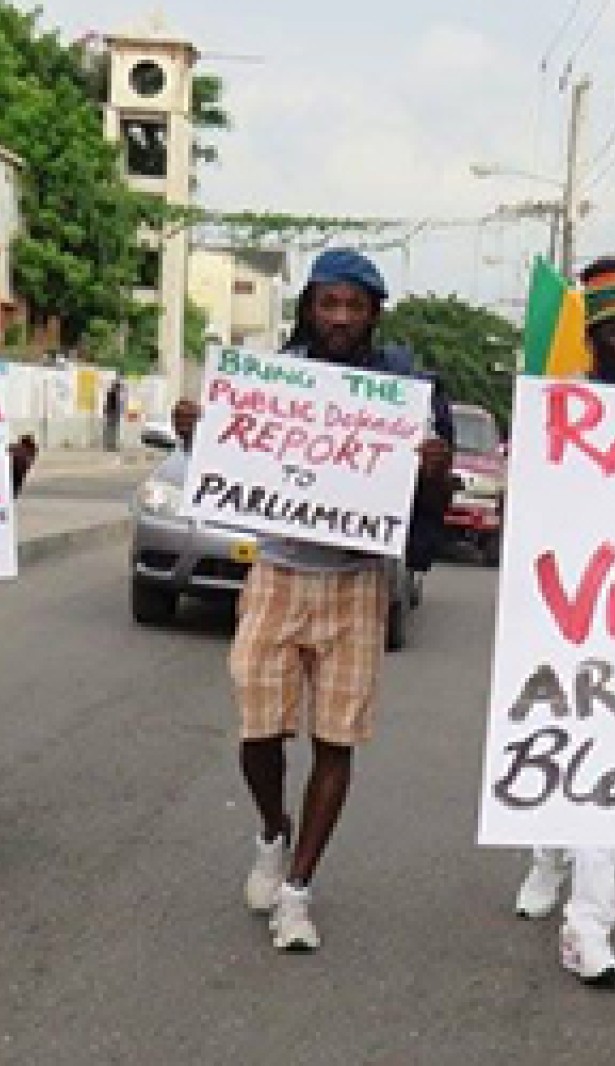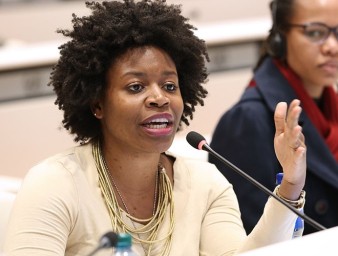After more than half a century, a community receives justice
26 May 2017

More than half a century seems a long time to wait for justice.
But for Ika wani Tafara, chair of the Rastarfari Coral Gardens Benevolent Society (RCGBS), the wait -- while difficult, brutal and sometimes out and out discriminatory -- was worth it. The wait ultimately brought recognition of wrong doing; it eventually will bring compensation. The wait finally brought justice.
“Justice had to be sought for because we are living constantly with the direct survivors of this atrocity that took place. It has started the process of redress from the government…for what we knew was a justified cause and we were confident of victory of good over evil in the prevailing situation,” he said.
Between 11 and 12 April 1963, violence flared at Coral Gardens, a small town 10 miles outside Montego Bay, when a group of six Rastafarians set fire to petrol station. The subsequent police actions and crack down lead to violence resulting in the death of civilians and police, as well as the prosecution, ill-treatment and detention of Rastafari across the island.
But, a review of the events by the Jamaican Public Defenders Office published in 2015, declared what happened at Coral Gardens a violation of the human rights of Rastafarians, which had far reaching effects.
“The events at Coral Gardens in April 1963 marked a significant watershed in the relationship between the Rastafari community and the State. The discrimination against that community was inflicted by the citizenry as well. Indeed Rastafari had to contend with hostility from many quarters,” the report stated.
On 4 April 2017, the Rastafari community organized a march in Kingston to demand the Government honour the findings and recommendations of the report. That same day, Prime Minister Andrew Holness apologized in Parliament to those unfairly targeted in the Coral Gardens event.
“Today, without equivocation, we apologise for what occurred in Coral Gardens,” he said. “We express our regret and sorrow for this chapter in our national life that was characterised by brutality, injustice and repression, which was wrong and should never be repeated.”
Reparations, recompense, regret
UN Senior Human Rights Advisor Birgit Gerstenberg joined UN Development Programme (UNDP) and the local NGO Jamaicans For Justice (JFJ) to meet with RCGBS and offer support in their claims for community development as well as raising awareness on human rights concerns of the Rastafari community. The recommendations made in the Public Defender’s report were an invaluable opportunity to look at the history and present claims of Rastafari from a human rights perspective, Gerstenberg said.
“The events of 1963 were a far reaching, incisive moment of long years of discrimination, marginalisation and persecution,” she said. “[They were ] important in the history of human rights in Jamaica since the killing, arrest, torture and degrading treatment of Rastafari in Coral Gardens marked a before unseen violence against them and the pending apology and reparation were unfinished business of the governments for a long time.”
The Public Defender Office revisited the case, after repeated requests from members of the Rastafari community. In 2015, the results were reported to Parliament, and found that following the incident, the Rastafarians suffered “discrimination, denigration and scorn.”
The report made recommendations, including an apology to those who were directly involved in the Coral Gardens events, the establishment of a Rastafari cultural centre and trust fund of J$10-million to pay reparations to the survivors of the incident.
However, the Government’s response took time. A committee was set up to study the report and make recommendations to Cabinet about the implementation of the report’s recommendations. Gerstenberg, along with UNDP and JFJ, contacted the Coral Gardens group in September 2016 to provide support for RCGBS.
“We offered human rights awareness training and [We] provided assistance to advocate with the Prime Minister for the implementation of the recommendations of the report,” Gerstenberg said.
In addition to the apology this year, Prime Minster Holness announced that the government would make compensation to those who had been victims in the Coral Gardens events.
For Tafara and others, the apology, while welcome, does not lessen the desire to see true integration and justice for the Rastafari.
“It makes me feel good, dignified and validated in the years of heartical, spiritual and material efforts that were manifested in faith to denounce past injustices and looking toward a victorious future, especially for the reparations to be received by the survivors and the community,” he said. “It strengthens my resolve that from generation to generation we must not give up on the fight for what is truth and right, and that might can only beat right for a moment in time.”
Want to read more about fight for human rights of the Coral Gardens Rastafari community? A longer version appears in our Medium blog.
26 May 2017

